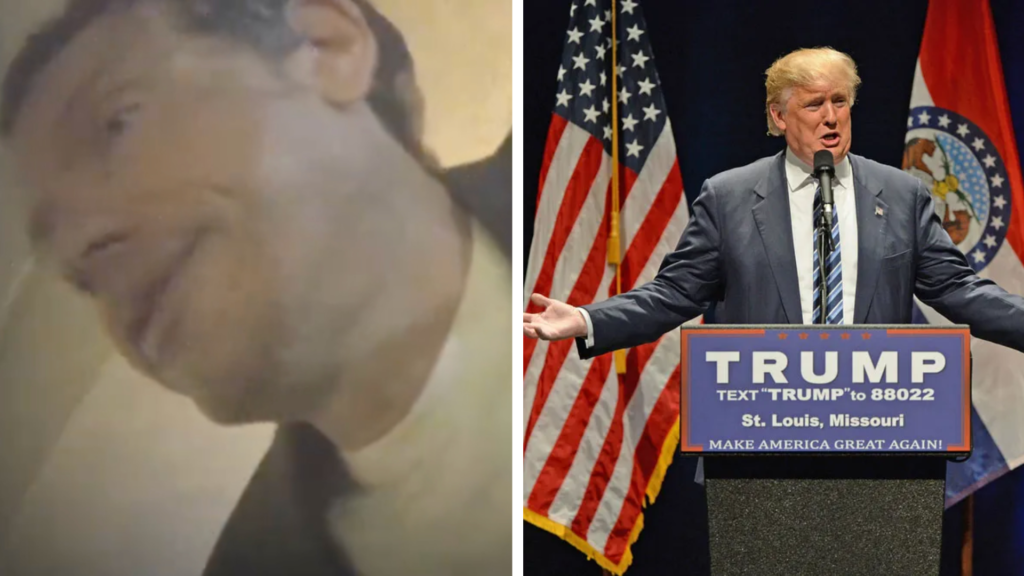
On Thursday, Louder with Crowder’s MugClub Undercover unit released a video featuring a Jorge Paoletti, an Associate Legal Officer in the United Nations Office of Legal Affairs, candidly discussing his concerns about a potential second term for Donald Trump.
In the video, Paoletti expresses how the UN is “terrified” of Trump’s return to the presidency and affirms that globalism is “absolutely” a key objective of the international organization.
Paoletti explains that the “MAGA movement” is characterized by strong nationalism, with its slogan “America First” embodying a sentiment of prioritizing American interests above all else.
He describes this movement as deeply opposed to globalism, stating, “One of the main enemies are what they call the globalists. I’m the definition of a globalist.” Paoletti adds, “I’m not sure the United Nations as an institution is going to survive a second term by Donald Trump.”
BREAKING: Self Described “Globalist” United Nations Legal Affairs Official Says He's "Not Sure Institution is Going to Survive" Second Trump Term; Reveals Colleagues “Terrified” of His Reelection; Admits U.N. is ‘95% useless’ at Primary Function of International Peace & Security… pic.twitter.com/fTgizVySvm
— Steven Crowder (@scrowder) August 29, 2024
When asked to elaborate on why a second Trump term would be so concerning, Paoletti suggests that Trump’s agenda is to dismantle international institutions that aim to “level the playing field.” He adds, “They want America first.” Paoletti notes that the UN is particularly wary of Trump, saying, “I mean, we are terrified. They’re terrified,” and that “absolutely nobody wants Trump.”
Paoletti also describes the United Nations as the closest thing the world has to a “world government” or “a world state.” He confirms that globalism is indeed one of the UN’s goals, aiming to foster a sense of global identity and shared political consciousness.
“One of the objectives of the UN is to create an identity of a global citizen,” Paoletti says, emphasizing the organization’s effort to promote a collective identity across the planet.
When asked if this globalist agenda is widely recognized, Paoletti affirms that it is, acknowledging that it can be frustrating for those with ultranationalist views. He views this globalist push as a “threat to the absolute power of the United States,” explaining that such individuals resist the idea of any institution having authority over the US.
During the conversation, Paoletti highlights the significant financial contribution the US makes to the UN, noting that it covers 27 percent of the UN’s budget—more than any other country by a large margin.
He argues that without US support, the United Nations would be ineffective, particularly because the organization does not have its own army, which he believes it “absolutely” should have.
Paoletti also discusses the potential challenges that could arise if the UN were to impose regulations, such as environmental limits, on the US. He predicts backlash from Trump supporters, saying, “How do you think all these crazy MAGA people are gonna react to that? ‘Who are you globalists to tell me, the United States, what I can do?'”
In addition to his concerns about Trump’s impact on the UN, Paoletti touches on how regional international organizations, like the Organization of American States (OAS), could pursue legal actions against Trump if he wins a second term.
He mentions that skillful lawyers could leverage human rights cases to challenge Trump’s actions through these organizations. The OAS, with its strong human rights tribunal system, could be a particularly effective avenue for such challenges, given that the US is a participant in this system.
Lastly, Paoletti admits that the UN often falls short of achieving its primary goals, particularly in matters related to international peace and security. When asked if the UN is now useless, he responds, “For 95 percent of issues related to international peace and security, yes.”

